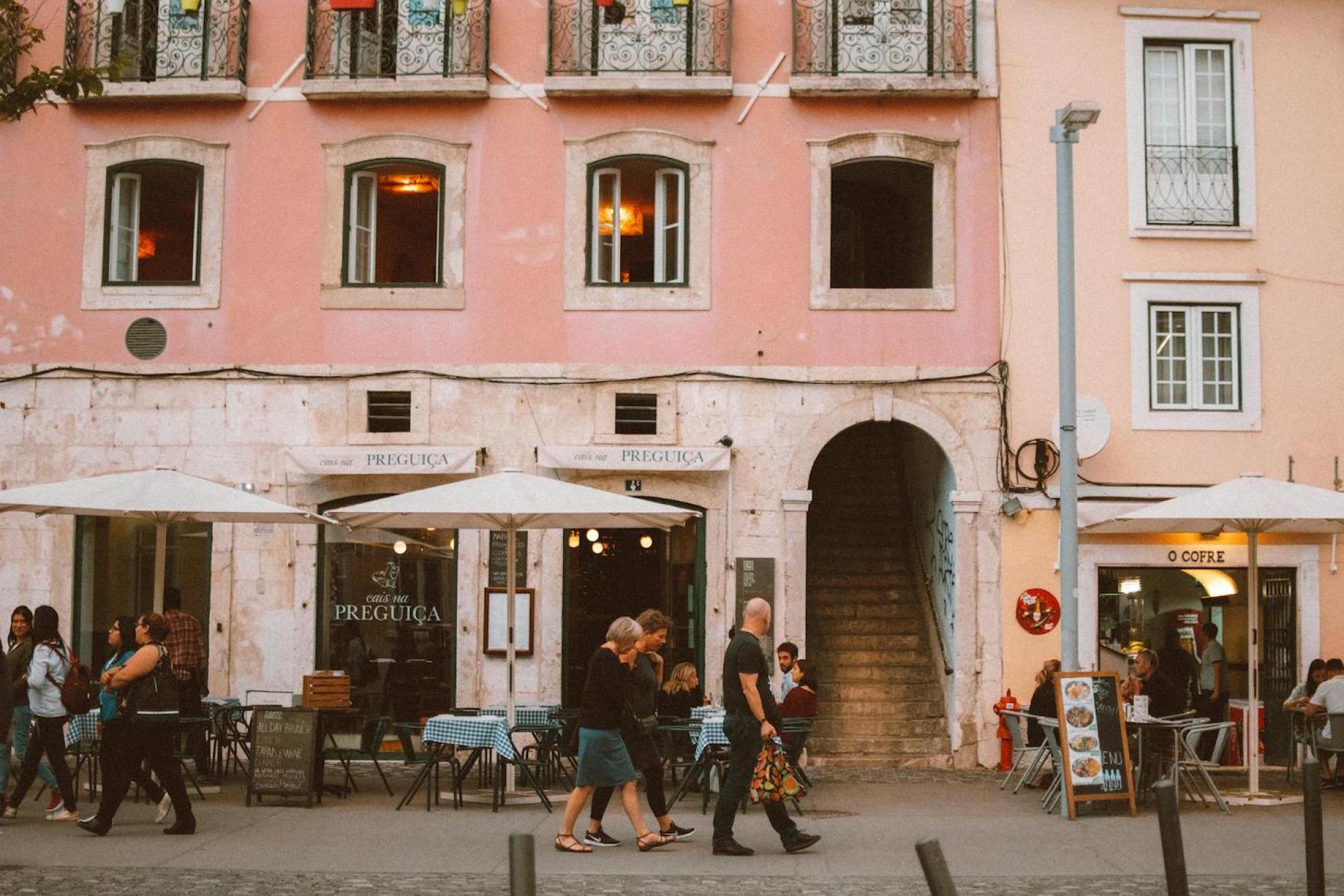Two years ago, we arrived in Lisbon, Portugal, and everything was brand new. We didn’t know how the recycling/waste collection worked, we didn’t know where our local corner shop was, or even where to find simple items like crockery and cups. It was like being a child and starting at a huge new school. Everything is new; everything seems huge; and nothing is familiar. It was all very exciting.
Getting lost and finding yourself
After a crazy week of walking the streets of Lisbon staring at Google Maps and getting lost more than a few times, we started to find out way to the places we needed to go. The local supermarket, the corner shop, the nearest vegan restaurant. Then came navigating a host of utility sign-ups with very little in the way of Portuguese language skills.
It’s easy to think as a native English speaker that everyone in Europe speaks English. Reality check—they don’t. At least not all of them. So, you do your best, you ask: “Você fala inglês?” more times than anything else in a few days and things start to happen.
Weeks turn into months, and we’re readily directing confused tourists to the correct Metro station, or giving directions on the street. I can easily find any number of my favourite, most-visited places and you’re getting lost less and less. Although, in my case, I could get lost in my home city, so that should be taken into consideration!
Not being prepared to pay tourist prices
Suddenly, I become aware of the cheapest places to buy staples like tofu, beans and vegetables. I’m no longer paying over 1.20 Euro for a cup of coffee, because that’s just a ridiculous price and something only tourists do! Our Portuguese friends are telling us where to go: Hidden spots that you wouldn’t necessarily find without them. Tricks and tips for residents and citizens.
A year goes by and we’re flawlessly giving your financial number in shops, without even thinking or translating. We can order a coffee and a meal, without a word of English. I remember standing in a store and hearing a conversation between an employee and a customer, I listened and knew what they were saying. Then, I thought to myself, “I understood that. That wasn’t in English. Wow!” A little happy dance ensued inside my brain.
Habituating
In the months leading up to the two years, I’ve noticed a few things, and most of them revolve around the “new normal.” What was once strange and new, now seems normal and almost routine. In fact, I’ve got really bored of the regular walk to our nearest Metro station, just 10 minutes away. So much so that I’m looking for buses or new routes, just to mix it up. I mentioned this to my husband and he agreed that he felt the same. Getting bored of a walk to the Metro—now that’s settling in!
I know where to buy each and every one of my favourite vegan grocery items—which one is cheaper and where they are. Even some of my friends who have lived here longer than us are asking me for advice. In fact, we know more about the vegan restaurants in town than many of our (also vegan) Portuguese friends!
I no longer wonder why so many people walk in the roads—I do the same to avoid slipping on the beautiful Calçada Portuguesa pavement. (Word of advice: Don’t wear high heels or shoes without a good grip in Lisbon.)
Where we once sat for coffee and looked around at the beautiful architecture, parks and general environment of the city, we now take it all as “our backyard” or completely normal. However, don’t get me wrong, there are still many occasions when I take in the reality of the city we live in and pinch myself, wondering if I’m dreaming. After all, the culture, the buildings, the way the city looks, it’s not my normal. It’s not where I grew up, or even anything like it. Just because I’m habituated, doesn’t mean I don’t like it.
What's next?
We have no intention of leaving our current location, but now that we’ve settled in and things seem less “new,” it’s a case of exploring more, looking closer at the things we walk past every day. Finding new routes, new buses and new things. There is so much still to experience from this culture, these people. Normal doesn’t have to mean boring, and habituated doesn’t have to mean that it’s time to move on.
In fact, many of our friends are getting worried that we’ll leave, given that we’ve reached the two-year mark. And before, when we were younger perhaps we would. I’m in my 40s now and I’m still very much a nomad, but I don’t have the same enthusiasm for moving every few years, like I did in my 20s and 30s. Honestly, I can’t imagine anywhere else in the world I’d rather be now anyway.
Add this article to your reading list




